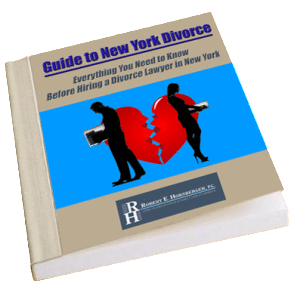As a Divorce Mediator and Collaborative Law Attorney on Long Island, I have found that many people have questions about the difference between Divorce Mediation and Collaborative law and which one might be best for their particular situation.
If you are contemplating or preparing for divorce, it is important to understand that there are several options available to you. Divorce is not always the horrible, volatile legal battle that many believe it to be. Instead, there are options like Divorce Mediation and Collaborative Divorce that have been developed as a way to circumvent a lengthy, expensive, and exhausting court battle between you and your soon-to-be ex-spouse.
What is Divorce Mediation?
First, divorce mediation is a process where you and your spouse will sit with a neutral third party mediator. Your divorce mediator will listen to your and your spouse’s objectives and concerns. He or she will then serve a few different roles that will assist you in reaching agreements on various issues.
First, your mediator will act as a sort of translator between you and your spouse in order to help you to effectively communicate your goals to one another. He or she will also come up with creative solutions or ideas for compromise. Finally, your mediator will help you and your spouse focus on the issues that need to be addressed, one at a time, and will incorporate your priorities and objectives in a way that both sides can be satisfied with the results.
Divorce mediation is often successful in resolving most, if not all, of the issues involved in divorce without going to court. In some cases, where all issues cannot be resolved, those remaining issues can be litigated. However, the litigation will be limited to whatever issues could not be resolved, limiting the time, scope and cost of the litigation. Anything that was agreed upon in divorce mediation will be settled prior to going to court, and will not need to be rehashed there.
What is Collaborative Law?
Collaborative Law is a fairly new and unique process. Collaborative Divorce is essentially divorce without going to court. Both you and your spouse are represented by separate attorneys. Your attorney will actively negotiate for you and advocate for your best interests. Your attorneys will work diligently with you and the other party’s attorney to reach a divorce settlement out of court.
At outset of Collaborative Divorce, you and your spouse will agree to settle your divorce outside of court. The Collaborative Divorce is intended to be a complete substitute for divorce litigation. If the divorce ends up in court, they are disqualified from representing you. This is a terrific incentive for your attorneys to get the job done. Your attorneys will work hard to ensure that all of the issues in your divorce are addressed and resolved through the Collaborative Divorce process.
Divorce Mediation and Collaborative Divorce Ensure Privacy
Privacy is a significant benefit attached to both Collaborative Divorce and Divorce Mediation. In both of these formats, the discussions and negotiations will occur behind closed doors in an attorney’s office or conference room rather than in an open courtroom. This can be a tremendous benefit, especially where children are involved.
Divorce Mediation and Collaborative Divorce Save Time & Money
Another benefit of both of these approaches is the savings in cost and time. Divorce litigation can be a lengthy and expensive process of hostility, paperwork and delays. Both divorce mediation and collaborative divorce cut out a significant amount of this time and expense.
Differences of Divorce Mediation and Collaborative Divorce
One main difference between collaborative law and mediation is that collaborative divorce relies on the advocacy and negotiations of two attorneys. For some clients, having the attorneys be responsible for communicating with one another is an attractive feature and can be a huge advantage where there is significant hostility between spouses. Communication between attorneys keeps the dialogue as professional and focused as possible, whereas communication directly between hurt and angry spouses can often go off track and become more about arguing than problem solving.
On the other hand, some couples prefer mediation in order to feel like they are more in control over the dialogue and the outcome, or in hopes that working on communicating with their spouse about certain issues – especially those concerning children – can help them find common ground about how to co-parent after divorce.
Contact an Experienced Long Island Divorce Mediator and Collaborative Law Attorney for a Free Consultation
The Law Office of Hornberger Verbitsky, P.C. is experienced both in Collaborative Divorce and Divorce Mediation. Mr. Hornberger can take you step by step through both processes and provide you with insight about which may be the best option for you. Contact us at 631-923-1910 for a free consultation about your divorce.
Download our Free New York Divorce Guide
Our 41-page “Guide to New York Divorce: What You Need to Know Before Hiring a Divorce Lawyer in New York” written by an experienced family law lawyer, Long Island’s Robert E. Hornberger, Esq., provides you with real information on the divorce process and the laws it rests upon in the state of New York. This book will help give you a solid foundation upon which you can begin the process of making your family’s, life better. Download your Free Guide to New York Divorce here.
















